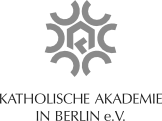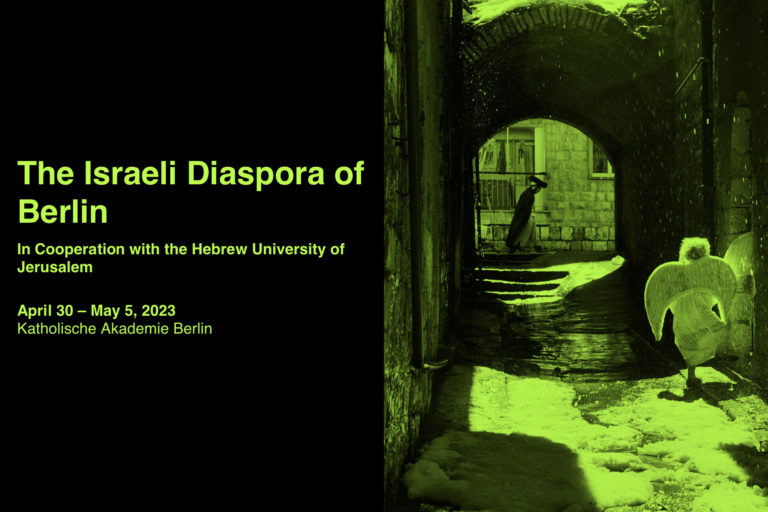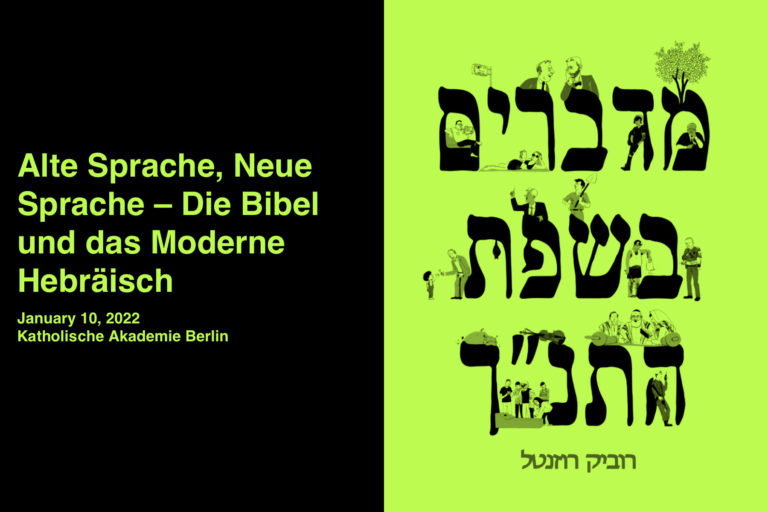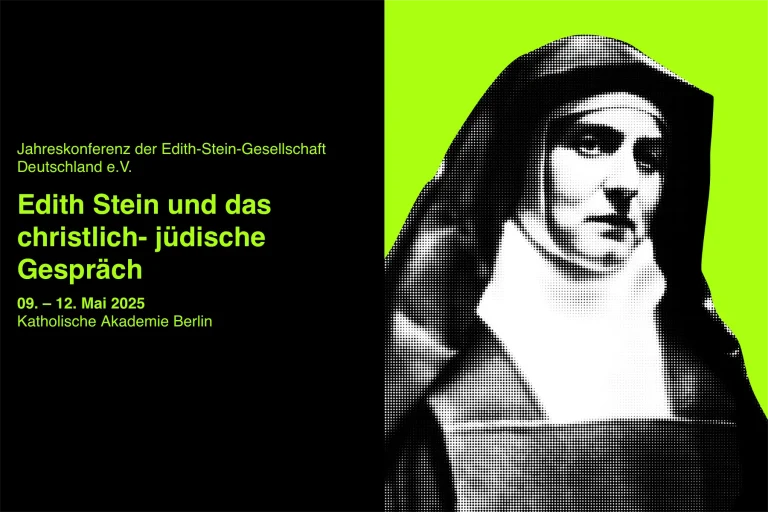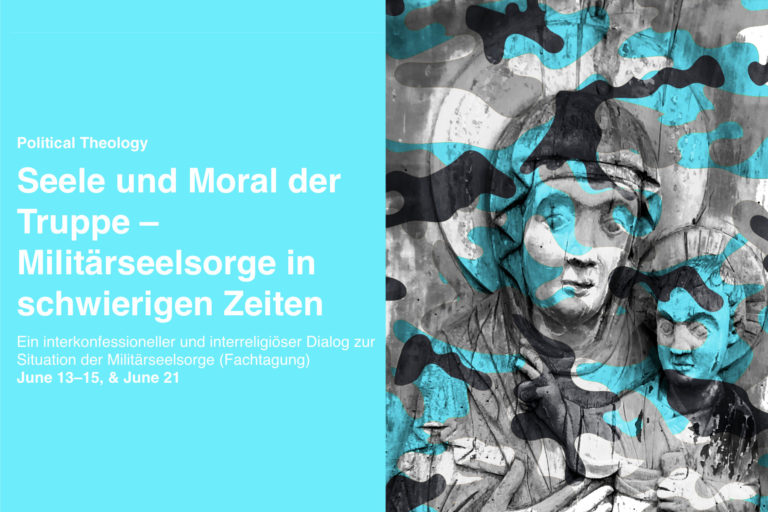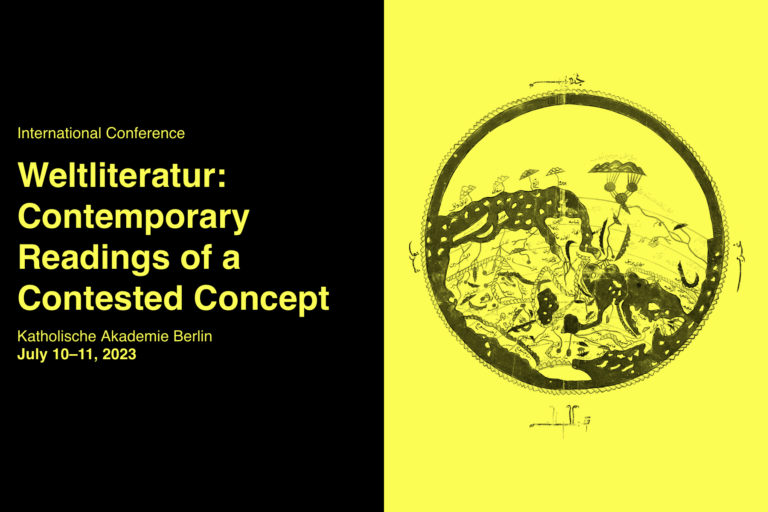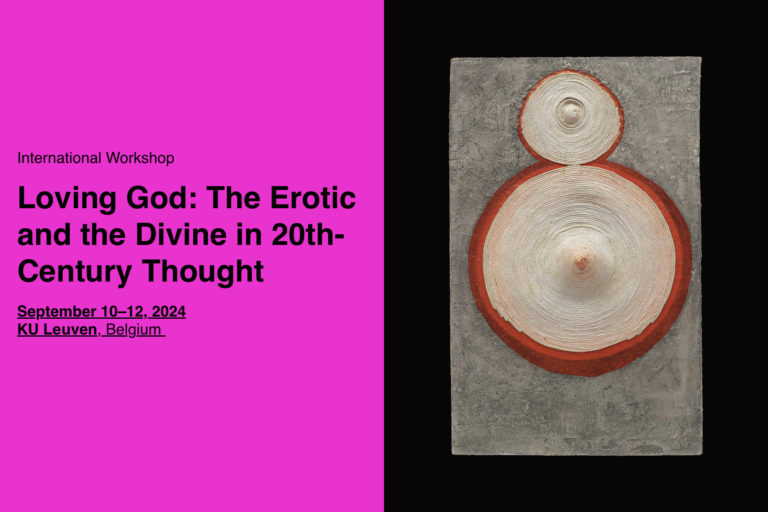Master Class Modern Talmudic Hermeneutics II
Katholische Akademie Berlin with Oded Schechter and Elchanan Reiner
September 12–14, 2022
Master Class on Modern Talmudic Hermeneutics II
The Berlin Center for Intellectual Diaspora holds a master class on modern talmudic hermeneutics, which will take place on September 12-14, 2022, at the Katholische Akademie Berlin.
Organisation: Prof. Dr. Elad Lapidot
The master class will consist in text study led by two instructors.
Elchanan Reiner (Tel Aviv University, emer.) will focus on three fundamental debates among talmudic scholars in the emergence of early modern Ashkenazi thought.
Oded Schechter (Makhloykes Berlin) will focus on Paulinian hermeneutics in Jewish Studies.
While discussions will be held in English, participants have basic reading proficiency in rabbinic Hebrew and Aramaic and basic familiarity with talmudic texts. The program is open to researchers also in fields beyond rabbinics, such as other areas of Jewish thought, philosophy, hermeneutics, literature, religion, history or culture.
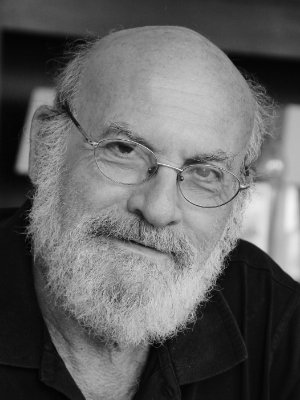
Elchanan Reiner was born in Jerusalem in 1946, he is Professor Emeritus of Jewish History at Tel Aviv University. Since 2016 he is the academic director of the National Library of Israel.
His main field of research is the cultural history of Ashkenazi, especially Eastern European Jewry in the Early Modern Period. In his research he is focusing on the beginning of the printed culture in the Ashkenazi milieu, the history of the Hebrew book and the history of the Early Modern Yeshivot and scholarship (“Lamdanut“). Among his publications concerning this field is ““The Yeshivas of Poland and Ashkenaz During the Sixteenth and Seventeenth Centuries – Historical Developments”, (Studies in Jewish Culture in Honor of Chone Shmeruk, Jerusalem, 1993); ”The Ashkenazi Élite at the Beginning of the Modern Era: Manuscript versus Printed Book,” in: Jews in Early Modern Poland (=Polin, 10), London 1997 and “Beyond the Realm of the Haskalah: Changing Learning Patterns in the Jewish Traditional Society,” in: Simon Dubnow Institute Yearbook, 6 (2007).
Reiner also specializes in the study of the oral religious culture of the late antiquity and medieval Jews in Palestine, dealing with local religious traditions and myths connected to holy places. His early work on pilgrimages to Palestine in the Middle Ages has been followed by related publications such as “From Joshua to Jesus: The Transformation of a Biblical Story to a Local Myth (A Chapter in the Religious Life of the Galilean Jew),” in: Sharing the Sacred: Religious Contacts and Conflicts in the Holy Land, Jerusalem 1998.
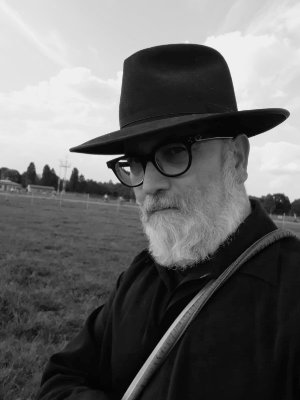
Oded Schechter is a philosopher and talmudist. He lives in Berlin and is the co-founder of the Berlin Makhloykes Center.
Voices
I enjoyed participating in the Master Class, which included interesting auxiliary programming around its two core classes. Prof. Elchanan Reiner, a distinguished professor and expert in early modern Jewish intellectual history, presented some of his fascinating scholarship on polemics provoked by printing press. Dr. Oded Schechter, a very creative thinker, offered a genealogy of the field of Jewish Studies as a Pauline category. These classes were mind-broadening and offered much food for thought. The auxiliary sessions, with Prof. Yaakob Dweck and Prof. Marc-Alain Oukanin on Jacob Sasportas, and with Prof. Yakov Rabkin and Dr. Hannah Tzuberi on some Orthodox anti-Zionist approaches, were also enlightening. The quality of the participants was excellent, as were the accommodations throughout. Many thanks!
Shlomo Zuckier
The workshop on Modern Talmudic Hermeneutics was a unique opportunity to engage with rabbinic literature from a historical and philosophical perspective. Learning about transformations of 16th-century Ashkenaz Jewry as well as contemporary scholarly conceptions of Judaism was an exciting and mind-provoking adventure. The workshop was conducted in a warm, collegial climate, and I enjoyed the formal and informal exchanges with the diverse and international group of wonderful young scholars. I want to extend my gratitude to E. Lapidot, and our teachers E. Reiner, O. Schecter, and guest lecturers Y. Rabkin and Y. Dweck for this experience.
Netta Schramm
I would like to thank Elad Lapidot for organizing the second Master Class on Modern Talmudic Hermeneutics at the Berlin Center for Intellectual Diaspora. As a young scholar studying the Babylonian Talmud in late antiquity, the master class formed a rare opportunity to understand in depth the cultural acceptance of the Talmud from historiographical and philosophical perspectives. Using a close reading of text and discourse, Elchanan Reiner and Oded Schechter generously offered an intriguing pathway to the hermeneutical process of religious exegesis in Jewish thought. The exceptionally vibrant and fascinating group of diverse young scholars participating in the master class and the book presentations about Sabbateanism and Post-Zionism completed the thought-provoking gathering.
Gal Sela
The masterclass on “Modern Talmudic Hermeneutics” at the Katholische Akademie in Berlin was a very rare thing: a bright spot in the humanities. For three intense days, a group of twenty students got to watch two of the great Talmudists of our age – Oded Schechter and Elchanan Reiner – grapple with some of the central debates in Jewish studies. Elchanan Reiner offered his students a view onto Jewish life in sixteenth-century Poland. More precisely, he offered three views: each day of his seminar tackled one of the central debates in early modern Jewish intellectual life. In his teaching, the Talmud in sixteenth-century Europe became as much an early modern text as a product of late-antiquity. With humor, with candor, and with rigor, Reiner showed his students how to marry philology with history in order to reconstruct the world of the Talmud north of the Alps in the sixteenth century. By contrast Oded Schechter demonstrated how much the categories of modern scholarship on the Jews and on Judaism remains wedded to a Christian framework and has yet to account for the dominant presence of the Talmud in the Jewish tradition. As he toggled back and forth between ancient and modern sources, Oded showed his students just how much work remains to be done before we can understand the Talmud as an ancient and as a modern source. Throughout the workshop, the students and the teachers interacted as colleagues. Instead of the sclerotic hierarchy that characterizes so much of academic interaction in the United States and Western Europe, there was genuine dialogue. Moreover, there was disagreement without rancor, humor without oneupmanship, and candor without restraint. I feel lucky to have participated in the workshop.
Yaacob Dweck
Let me thank you and the Katholische Akademie for such an enriching experience, in which I am privileged and honored to participate in the Masterclass of Modern Talmudic Hermeneutics. The Masterclass was a wonderful way to engage with some Themes, Methods, Ideas, and Terms in Jewish Thought I was eager to acquire. The intensive studying conducted in a pleasant and intimate way, helped me to get to know some brilliant teachers and colleagues. I hope to enjoy this experience in the next years as well!
Hillel Feuerstein
I was delighted to partake in this extraordinary seminar. The morning class was devoted to a historical insight in the history of print and its cultural ramifications. The afternoon class was devoted to a philosophical analysis of recent scholarship on Paul and the strategy of reading the Talmud. The speakers were kind, clear, and very informative. Many thanks to the organized Prof. Dr Elad Lapidot.
Federico Dal Bo
The Masterclass in Modern Talmudic Hermeneutics has been an opportunity to engage with sources, participants and lecturers in a unique way. The material and hermeneutic method presented by Oded Schechter and Elchanan Reiner provided a thorough and thought-provoking perspective on textual hermeneutics and historical developments which have shaped the mode of thinking in Jewish Studies as part and reflex of theological, philosophical and technological developments in Western society over centuries. It has been refreshing and, in retrospect, absolutely essential for my own development as a thinker to have participated in this masterclass.
Raphaelle Oskar
Participants
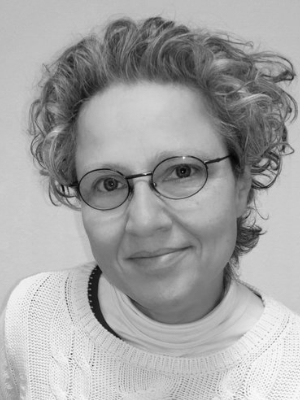
Judith v Bresinsky is a Berlin-based student of Jewish literature from late antiquity. She is interested in Talmudic literatures from the two centers of Jewish literary creativity at the time, the Land of Israel and Babylonia, their ideological developments and differences between the late Second Temple era until the early Islamic period. In particular, she focuses on patterns of halakhic and narrative structures that shape and re-shape constructions of historical truth[s]. Currently, she works on a Feminist Commentary-project on Tractate Qidushin’s first chapter.
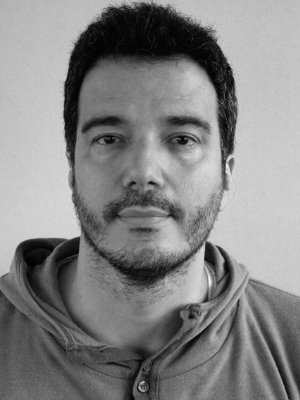
Federico Dal Bo holds a PhD in Translation Studies (Bologna, 2005) and a PhD in Jewish Studies (Berlin, 2009). He currently works as a Research Assistant at the University of Heidelberg / Hochschule für Jüdische Studien in the project ‘Material Text Cultures’. For more information, please visit: www.federicodalbo.eu
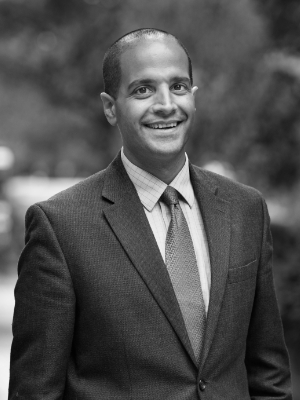
Yaacob Dweck is professor of history and Judaic studies at Princeton University.
He is the author of two books: The Scandal of Kabbalah: Leon Modena, Jewish Mysticism, Early Modern Venice (Princeton University Press, 2011) and Dissident Rabbi: The Life of Jacob Sasportas (Princeton University Press, 2019). He has also written an introduction to the reprint of Gershom Scholem’s Sabbetai Sevi: The Mystical Messiah (Princeton University Press, 2016). He is currently preparing a new edition of Ari Nohem by Leon Modena and working on a study of the early modern Sephardic rabbinate.
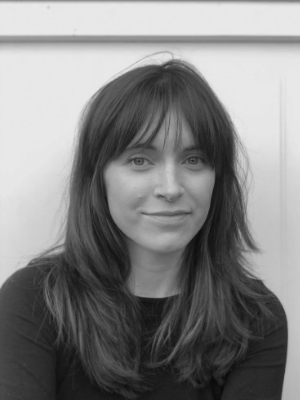
Deborah Epstein is a PhD student and a research assistent (Wissenschaftliche Mitarbeiterin) for Jewish Studies at the University of Leipzig. In her dissertation projects she examines the question whether Susan Taubes’ philosophy of religion can be regarded in terms of an existentialist atheism. Her research focuses on Modern Jewish Thought with an emphasis on how secularistic and atheistic thought is introduced and construed within it as well as the Ethics of Alterity and Political Theology.
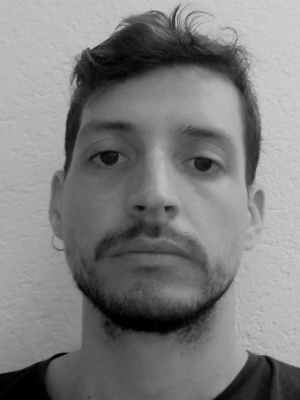
Hillel Feuerstein After Graduating my MA (Cum Laude) in Jewish Thought, at the Hebrew University of Jerusalem, with a Scholarship for Excellence from the Mandel Institute of Jewish Studies; I proceeded my Studies in Jewish thought in Bar-Ilan University, as a Phd Student, under the supervision of Prof. Daniel Abrams; with the support of The President’s Scholarship Program for Outstanding Doctoral Fellows. My thesis is examines ‘The Secret of Creation in the Zohar: A Critical Inquiry with Editions of Selected Texts’. My MA thesis: The book of Vanished Letters: An Annotated Critical Edition with Introduction, is due to be published with Cherub press.
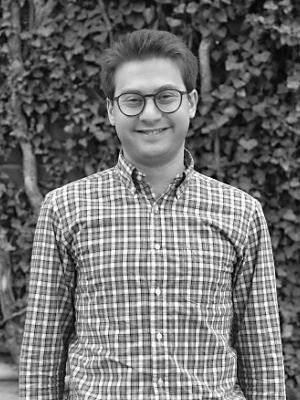
Eliav Grossman is a PhD candidate in the Department of Religion at Princeton University. He is interested in the redaction and transmission of rabbinic literature, law, and culture in Late Antiquity and the early Islamic period, with particular attention to Syriac and Arabic literary developments as critical contexts.
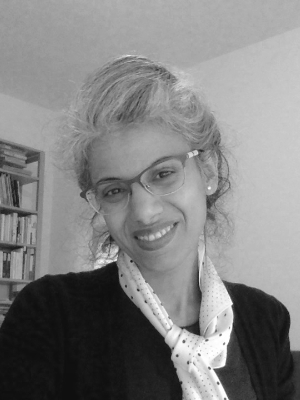
Yemima Hadad holds the Juniorprofessur für Judaistik at the University of Leipzig. Dr. Hadad teaches Modern Jewish Thought, German-Jewish Philosophy, and Rabbinic Literature. She is a research Fellow at the Bucerius Institute for Research of German Contemporary History and Society at the University of Haifa.
Her research interests focus on Political Theology, Continental Philosophy, Feminism and 20th-Century Jewish Thought. Her dissertation, which she completed at Potsdam University demonstrates the significance of Hasidism in explaining the political tenets of Martin Buber’s thought. She is currently working on a book on the weak God in Jewish sources and modern Philosophy.
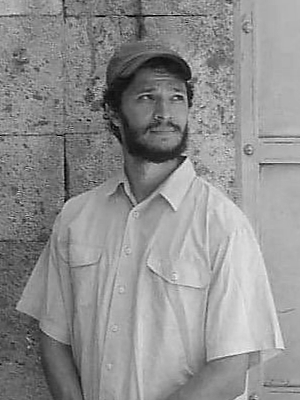
Adam Mitelberg is a PhD candidat in theology at Institut d’Études Religieuses of the Université de Montréal. After a traditional Jewish curriculum and while still attending the Ohr Sameach Yeshivah of Montréal, he is interested in combining the structure of dialogue and knowledge from the Gemara with the linguistic theory of the french post-structuralism.
He is currently working on the translation and the edition of the “Tserror Hamor”, a mystical and poetic text from Itzhak Ibn Latif, a kabbalist rabbi from the Iberia peninsula of the 12th century.”
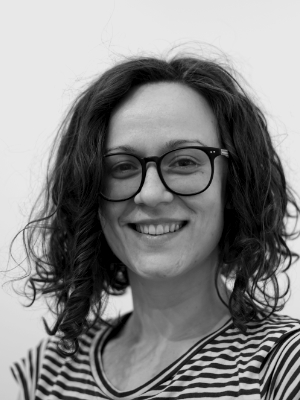
Ena Raphaëlle Oskar Schulz is a PhD candidate in Rabbinic Literature at the Hebrew and Judaic Studies department at New York University. She is also a performing and multimedia artist. Raphaëlle’s interests revolve around performance and performativity in and of the Talmud.
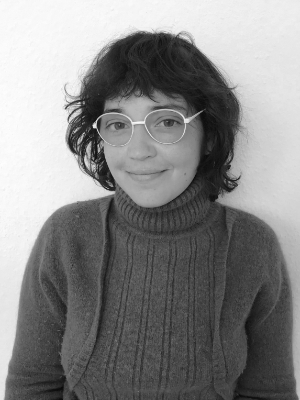
Rachel Pafe is a writer and researcher interested in twentieth-century post-war German-Jewish thought and interdisciplinary theories of mourning. She is currently a PhD candidate at University of Leipzig.
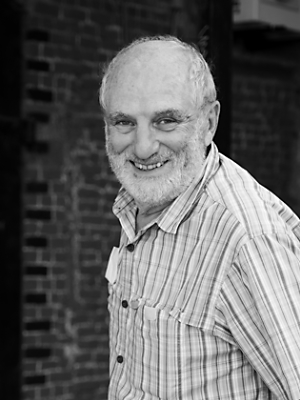
Yakov M. Rabkin has been Professor of History at the University of Montreal since 1973, and has held visiting positions at universities in Australia, France, Israel, Japan, Russia, South Africa, Ukraine and the United States. His areas of interest include contemporary Jewish history, international relations in science as well as demodernization.
Yakov Rabkin is the author of several books, including Science between the Superpowers, A Threat from Within: A Century of Jewish Opposition to Zionism (now available in fifteen languages), What is Modern Israel? (available in English, French, Italian, Japanese and Russian), and Judaïsme, islam et modernité. He frequently contributes to electronic and printed media.
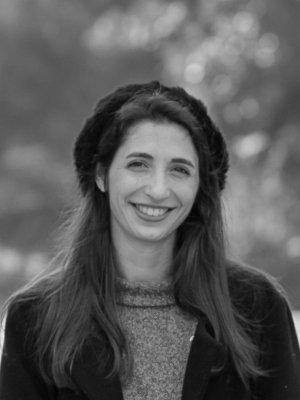
Netta Schramm is a graduate student at the Hebrew University of Jerusalem and head of the interdisciplinary research group “I’m Not a Text”. She is interested in performance and the hermeneutics of oral and written texts. Her Ph.D. project is titled: “Sound Beliefs: Narrative and Performance in the works of Yeshayahu Leibowitz, Ovadia Yosef and Irving Greenberg”.
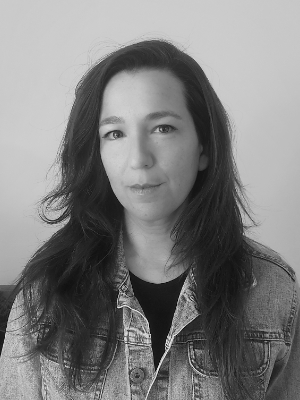
Dr. Gal Sela is a postdoctoral fellow at the Department of Hebrew Literature, Ben Gurion University of the Negev, Israel. Recently Gal completed her Ph.D. in The Department of Hebrew and Comparative Literature at The University of Haifa, Israel. Written under the supervision of Prof. Dina Stein and Prof. Haim Weiss, her Ph.D. entitled “Theurgy in the Babylonian Talmud: A New Taxonomy of the Holy Man” addresses a lengthy story sequence in the Babylonian Talmud. It offers a novel approach to the critical analysis of ancient religious fiction by employing folklore studies and Foucauldian Heterotopia as a reading method. Her postdoctoral project discusses the Babylonian apocalyptic and mystical traditions associated with the holy man figure of Hanina ben Dosa. By comparing several textual sources, canonic and esoteric, approximately dated between 400 CE and 900 CE, Gal seeks to map and clarify the nature and stand of magical knowledge in the Babylonian Judaic congregations.
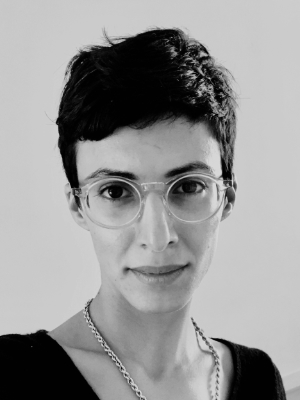
Bat Chen (Laila) Seri is a PhD candidate in Philosophy of Religion at the Centre for Theology and Religious Studies, Lund University. Her Doctoral thesis, working title ‘The Literary Afterlife of Religion: Reading Kafka with Walter Benjamin’, explores reading as an ethico-religious task in a post-secular age, taking an interdisciplinary approach with a focus on Judaism. Previously, she studied for an MA in Philosophy at the University of Amsterdam where she received the Amsterdam Merit scholarship and wrote her master’s thesis on Walter Benjamin’s mystical theory of language.
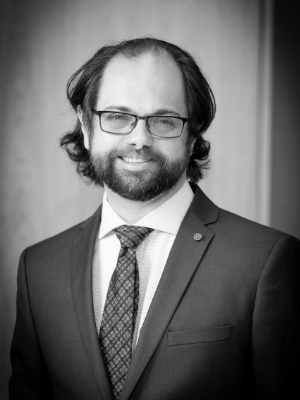
Micah Streiffer is a Ph.D. student in the Department of Religious Studies at McMaster University, focusing on Jewish thought. He received his Master’s Degree in Hebrew Letters from the Hebrew Union College-Jewish Institute of Religion in 2007, and has served as rabbi of Congregation Kol Ami in Thornhill, Ontario, Canada for the last eleven years. Micah’s research interests include liberal Jewish thought, Rabbinics, and Jewish textual interpretation.
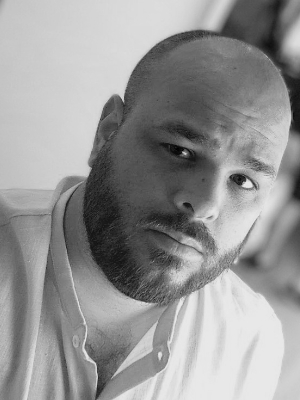
Oren Yirmiya is a Ph.D. candidate of Modern Hebrew Literature, in the Department of Middle Eastern Languages and Cultures at The University of California, Berkeley. He is also affiliated with The Program in Critical Theory and The Center for Jewish Studies. In his work, Oren studies modern Jewish Literature in Hebrew and Yiddish, focusing on the poetry of the 20th- and 21st-centuries through the lenses of aesthetic theory and intersubjective phenomenology.
Throughout his work, Oren examines poetic articulations of social alterity, specifically examining Jewish othered position in Europe and The othering of non-Ashkenazi and Palestinian communities in the State of Israel. In his dissertation “The Other(‘s) Lyric:Piyyut, Agency, and Alterity in 20th century Hebrew and Yiddish poetry,” Oren explores the intersections of lyric theory and the Hebrew premodern genre of Piyyut, arguing for the power of Piyyut’s communal intertextual practices, and showing these intertextual practices’ legacy in the works of modern Hebrew and Yiddish poets.
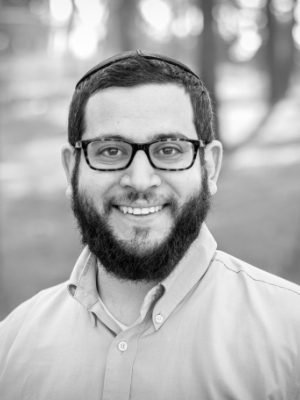
Shlomo Zuckier, a scholar of rabbinic literature and thought, is a Research Associate at the Institute for Advanced Study in Princeton. He received MAs in Bible and Talmud, as well as rabbinic ordination, from Yeshiva University in 2013 and a PhD in Religious Studies from Yale University in 2020. He subsequently held the Flegg Postdoctoral Fellowship at McGill University and was a Research Fellow at the Center for Philosophy of Religion at Notre Dame.
Shlomo has two books under contract: Theologies of Sacrifice and Atonement in Ancient Judaism (Cambridge University Press) and Halakhah: Normativity and Its Discontents, part of the Key Words in Jewish Studies series (Rutgers University Press).
Program
September 11
| 19:00-20:30 | Rabbinic Dissidence: Jacob Sasportas against Sabbatianism with Yaacob Dweck and Marc-Alain Ouaknin Reiner |
| 20:30 | Reception |
September 12
| 10:00-11:30 | Elchanan Reiner |
| 11:30-12:00 | Coffee Break |
| 12:00-13:30 | Session 2: Elchanan Reiner |
| 13:30-16:00 | Lunch |
| 14:30-16:00 | Session 3: Oded Schechter |
| 16:00-16:30 | Coffee Break |
| 16:30-18:00 | Session 4: Oded Schechter |
September 13
| 10:00-11:30 | Session 5: Elchanan Reiner |
| 11:30-12:00 | Coffee Break |
| 12:00-13:30 | Session 6: Elchanan Reiner |
| 13:30-14:30 | Lunch |
| 14:30-16:00 | Session 7: Oded Schechter |
| 16:00-16:30 | Coffee Break |
| 16:30-18:00 | Session 8: Oded Schechter |
| 18:00-19:00 | Break |
| Opposition to Zionism in Jewish Orthodoxy with Yakov Rabkin and Hannah Tzuberi | |
| 20:30 | Reception |
September 14
| 10:00-11:30 | Session 4: Elchanan Reiner |
| 11:30-12:00 | Coffee Break |
| 12:00-13:30 | Session 4: Oded Schechter |
| 13:30-14:30 | Lunch |
| 14:30-16:00 | Session 11: Oded Schechter |
| 16:00-16:30 | Coffee Break |
| 16:30-18:00 | Session 12: Oded Schechter |



